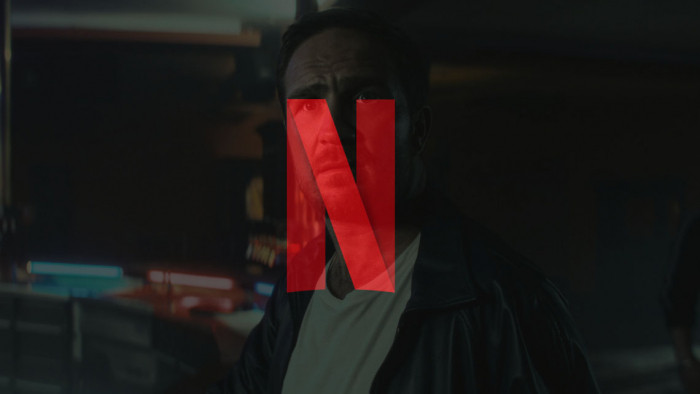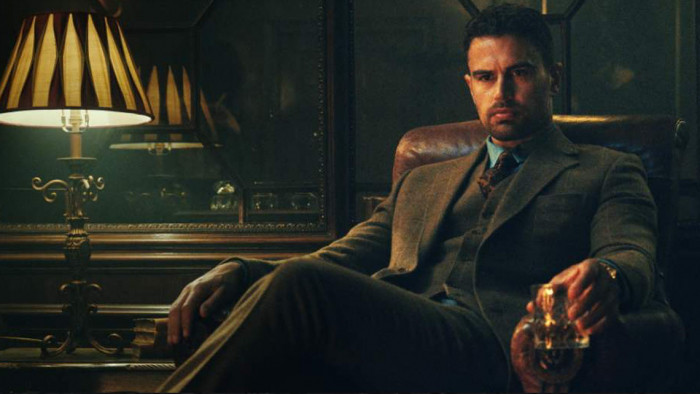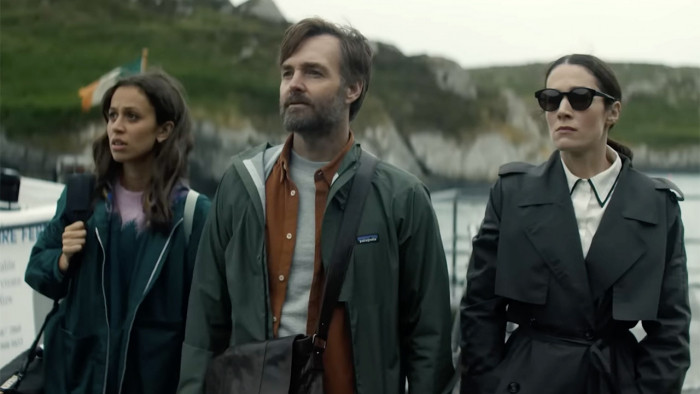Choosing the best episode of Futurama is incredibly difficult - even the worst episode of Futurama is better than pretty much any episode of anything else, because it has Bender in it - and as soon as you start thinking you’re settled on a favourite, you remember how good another episode is.
So many amazing moments have to be excluded in order to pick one - the finglonger, Slurms McKenzie partying himself to death, Everybody Loves Hypno-Toad, Zoidberg riding a sperm, every time Bender dances… God damn, Futurama’s a great show. No other show has ever done a better job of combining the really clever and gleefully stupid, matching jokes about complex mathematical principles with endless jokes about bums.
There are sillier episodes, like ‘Spanish Fry’ (which is penis joke after penis joke after penis joke). There are more emotional episodes (’Luck of the Fryrish’, ‘Jurassic Bark’, ‘The Sting’, the pitch-perfect ending of ‘The Devil’s Hands are Idle Playthings’), cleverer ones (’The Prisoner of Benda’ had a mathematical proof created especially for it), and ones that go more nerdily crazy on the sci-fi stuff (’Where No Fan has Gone Before’, for instance).
But ‘Roswell’ feels like, with the exception of the Fry-Leela relationship which isn’t touched upon at all, a show really doing everything it does well, incredibly flippin’ well. The story, the jokes, the animation, the voice acting - all are at their absolute best in this really silly, really filthy episode.

During the development of Futurama, creators Matt Groening and David X. Cohen put some rules together for the universe they were conceiving, one of which was a hard ban on time travel.
“With animation, because you can draw anything and do anything and have the characters do whatever you want, the tendency is to be very loose with the boundaries and the rules” said Groening in 2013. “But in my opinion the shows that fall by the wayside are the ones that aren’t aware that you have to have your own rules and boundaries. If anything is possible, the audience doesn’t care.”
“All the fans would nit-pick anything we did with time travel, so we thought we’d steer clear of it,” said Cohen. “We held out until Season 4.” The idea they had during that season - that the Planet Express ship travels back in time and becomes the UFO long rumoured to have crashed in Roswell in 1947 - appealed enough to the writing staff to break their rule, something an impending deadline also had a lot to do with.
The problem of suddenly allowing time travel is waved away beautifully - an emission of red stuff from a supernova (a rare enough event that the creators felt justified time travel while ensuring it couldn’t be used with any regularity) meets an emission of blue stuff from some microwaved popcorn, and they’re transported back to 1947, where something a bit more controversial than time travel takes place, as Fry accidentally kills his grandfather Enos and has sex with his grandmother.

The grandfather paradox - if you travel back in time and kill your grandfather, you will cease to exist, but that means you couldn’t have traveled back in time, so therefore you CAN exist, which means you can travel back and kill your grandfather, etc. - is a staple of time-travel, from Back to the Future to Black Sabbath’s Iron Man. Futurama’s spin on it, with Fry killing and then becoming his grandfather, is both a nod to and a subversion of the trope, with Professor Farnsworth telling him:“You mustn’t interfere with the past. Don’t do anything that affects anything. Unless it turns out that you were supposed to do it; in which case, for the love of god, don’t NOT do it!”
Futurama is always packed to the mandibles with spins on old sci-fi tropes, but ‘Roswell’ outdoes most of them, combining conspiracy theories with predestination, Robert Heinlein’s All You Zombies with references to old sitcom character Gomer Pyle, and a bonus Loch Ness Monster gag thrown in for fun.

Even by the ferociously high standards of Futurama, it feels like every line, every movement, every second, is funny. President Harry S. Truman doesn’t get off an aeroplane, he’s carried off it in a crate labelled ‘Canned Eggs’ which he punches his way out of. He insists that a UFO is taken to Area 51 for study, and when he’s told that Area 51 is the location of the fake moon landing, demands: “Invent NASA and tell them to get off their fannies.” When Fry pushes his grandfather out of the way of a moving truck, the truck turns the wrong way, really slowly, a long way away, and Enos lands on a pile of rusty bayonets. It’s funny in about five ways within about one second.

The episode deserves special mention for its commitment to grossness - historical incest aside, there are needlessly, gleefully vile moments aplenty, from Farnsworth’s unnecessarily rectal-sounding description of the ship’s time travel (“We tore the universe a new spacehole alright, but it’s clenching up fast!”) to Enos’s love of the side benefits of cooking (“Handling raw chicken? Mmm-mmm, finger-licking good!”), it’s an episode peppered with pleasingly foul moments.
And Zoidberg, beautiful, disgusting Zoidberg, nearly runs away with an episode in which his main function is to be as alternatingly baffling and vile as possible. From mingling with his guards (“So what are you guys doing tonight? I’m up for whatever!”) to taking President Truman’s interrogation as a come-on (“I’m not hearing a no…”), he’s at his stomach-churning best. In one scene he eats a deviled egg, has it surgically removed from his stomach by a scientist and then eats it again, an awesomely repulsive moment accompanied by absurdly deadpan commentary from the scientist.
A rule occasionally mentioned on episode commentaries by the show’s production staff is that the best thing about having an alien character is that, at any given point, their bodies can just do anything. Rarely is this demonstrated as beautifully as when Zoidberg’s organs are pulled out and thrown at the President until he chokes on the alien’s gas-bladder. “What an honour!” cries Zoidberg.
Something that, pleasingly, isn’t played for grossness is Fry’s revelatory discovery that Enos, the man he thought was his grandfather, is gay. Plenty of stuff broadcast 14 years ago has aged about as well as yoghurt in terms of such attitudes, but throughout, from Enos’ “Do you ever get the feeling you’re only goin’ with girls because you’re supposed to?” to the inexplicably bisexual pin-up calendar, Fry’s horror at his imminent non-existence is the butt of the joke, rather than Enos’ gayness.

And there are so many more beautiful moments in the episode, like the Professor and Leela’s pastiches of 20th Century speech (“Yo, homes!” “I’ll have a croque monsieur, the paella, two mutton pills and a stein of mead”), Leela setting the Professor on fire, Fry shouting at his grandfather’s testicles, “What’s this layer of ozone?”, Enos nearly taking a steak knife to the penis, and Bender’s magnificent “That’s no flying saucer, that’s my ass!” Fry replying to “Would you mind walking me home?” with “How far is it?” is a stunning piece of voice acting from Billy West - nobody else would nail the combination of stupidity, disinterest, pre-indignation and laziness.
Which brings us to Fry’s sex with his grandmother Mildred, voiced by the great Tress MacNeille. Society’s biggest taboo (for extremely sound reasons) isn’t generally dealt with in cartoons, but Futurama isn’t most cartoons, and happily had Fry hook up with his own blood relative.
“We were all in hysterics in the writer’s room about it, but then had that sobering moment of, ‘I don’t know if we can do that on TV,’” executive producer David X. Cohen told Rolling Stone in 2013. “The scene of the character sleeping with his grandmother – you haven’t seen that a lot on television. It’s a little disturbing. So we had to address it very carefully and make sure, obviously, Fry didn’t realise it was his grandmother.”
The writers spent several days figuring out the most tasteful way to do it, which led to one of the most underrated visual gags of the series - in animated form, the difference between a sexy young character and an elderly one is just a pair of half-moon glasses, some knitting and an ear-trumpet, providing post-coital Mildred with a hilariously disturbing transformation that Fry is still having slapped out of him several scenes later.
(As pointed out on the DVD commentary, Mildred has the Ten Commandments on her wall, seven of which are broken during ‘Roswell’.)

Something that the makers of Futurama have always been very proud of but doesn’t seem to get mentioned nearly enough is the quality of the animation. 2D and 3D elements interact beautifully, with the raid on the air base and the supernova and microwave radiation meeting (described to the animators by executive producer Rich Moore as “a red thing is happening and a blue thing is happening and they somehow come together”) particular standouts. In one brief shot, a nuclear explosion is glimpsed in the wing mirror of a moving Jeep - the mirror is moving, the land beyond it is moving, and the explosion is moving. The events of the scene would absolutely have been conveyable without this needlessly complicated, labour-intensive second of animation, but that’s the kind of show it is, committed to telling the story in the best way possible.
“The animators are in love with the show,” said Groening in 2013. “The voice actors are in love with the show. I’m going to miss it so much, because everybody on it has a really great time. There’s a camaraderie that is unlike anything else I’ve ever experienced.” Everyone’s commitment to the show paid off particularly well with this episode - it won the Emmy for Outstanding Animated Programme (Programming Less Than One Hour) and is cited as one of Matt Groening’s favourites.
The events of the episode also cast a long shadow within the show’s world - Fry “doing the nasty in the pasty” and becoming his own ancestor ended up becoming an important part of the ongoing story. “Fry is uniquely immune to certain things in the future” says Groening, referring to Fry’s lack of delta brainwaves, an important plot point in several later episodes. (The gag early in this episode where Fry asks “Can you smell blue?” could if you were really stretching, be seen as synaesthesic foreshadowing to the eventual reveal of his brain issues.)

The “so they shoot everything and then it’s OK” ending could conceivably be seen as a bit of a cop out, and Hermes and Amy are missed, but good god, there’s so much to love in ‘Roswell’. As much of a love letter to sci-fi cliches, conspiracy theories and nerd culture as it is a hilarious critique of them, both having its cake causality-wise and disgustingly devouring it, it’s the most Futurama episode Futurama ever made. Plus it manages to have its main character have sex with his own grandmother - not just nebulously “have sex with”, explicitly have unprotected sex and impregnate her with his own father - and still remain sympathetic. What other show has ever managed that?
(Images: 20th Century Fox)










